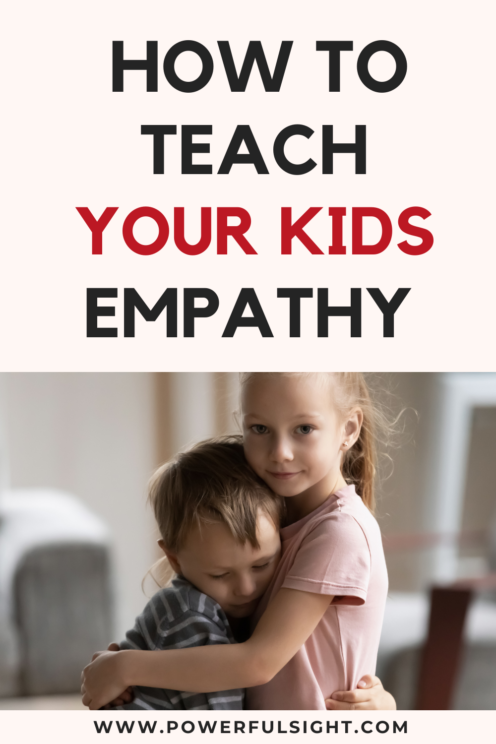How do you teach your child empathy?
Empathy is a crucial skill that helps children develop strong relationships, understand others’ perspectives, and become more compassionate individuals.
As a parent, you play a vital role in nurturing your child’s empathetic abilities.
Here are 15 effective ways to teach your child empathy:
Why You Should Teach Your Child Empathy
Empathy, the ability to understand and share the feelings of others, is a crucial life skill that can have a profound impact on a child’s social, emotional, and academic development.
By teaching empathy, parents can help their children become more compassionate, emotionally intelligent, and successful in their relationships and interactions with others.
Empathetic children are more likely to exhibit prosocial behaviors, such as sharing, cooperating, and offering comfort to others in need.
They also tend to have stronger emotional regulation skills, which can help them navigate challenging social situations and manage their own emotions more effectively.
Also, research has shown that empathy can enhance a child’s academic performance, as it helps them better understand and relate to the perspectives of their teachers and peers.
How to teach your child empathy
1. Model Empathetic Behavior
Children learn best by observing and imitating the actions of their parents.
In other words, to teach your child empathy, demonstrate empathy in your daily interactions by actively listening, validating emotions, and showing concern for others.
When your child sees you practicing empathy, they are more likely to emulate those behaviors.
2. Encourage Perspective-Taking
Encourage your child to consider different viewpoints and understand how others might feel in a given situation.
Ask them questions like, “How do you think your friend felt when that happened?”
Or “If you were in their shoes, how would you have reacted?”
Related: How to stop yelling at your kids
3. Read Empathy-Focused Books
Expose your child to stories that highlight empathetic characters and their experiences.
Discuss the emotions and perspectives of the characters, and help your child connect the lessons to their own life.
Related: How to raise God fearing kids
4. Engage in Cooperative Play
Encourage your child to participate in activities that require teamwork and collaboration, such as board games or group projects.
These experiences help them develop the skills to consider others’ needs and work together towards a common goal.
Related: How to handle disrespectful kids
5. Teach Emotional Vocabulary
Help your child expand their emotional vocabulary by introducing new words to describe feelings, such as “frustrated,” “compassionate,” or “disappointed.”
This will enable them to better identify and articulate their own emotions, as well as those of others.
Related: How to make your kids feel loved
6. Encourage Helping Behaviors
Provide opportunities for your child to help others, whether it’s assisting a sibling with a task, donating toys to a local charity, or volunteering in the community.
Praise and reinforce these acts of kindness to foster a sense of empathy and social responsibility.
7. Discuss Current Events
Use current events or news stories as a springboard to discuss how certain situations might impact different people.
Encourage your child to consider the perspectives of those involved and how they might feel.
Related; How to raise confident kids
8. Role-Play Empathetic Scenarios
Set up imaginative scenarios where your child can practice empathetic responses.
For example, you could ask them to imagine how they would feel if a friend was excluded from a group activity, and then discuss how they could respond in a caring and understanding way.
Related: How to stop your kids from lying
9. Acknowledge and Validate Emotions
When your child expresses emotions, whether positive or negative, take the time to acknowledge and validate their feelings. This shows them that their emotions are important and worthy of attention, which can foster a greater understanding of the emotional experiences of others.
Related: Here is why your kids fight all the time
10. Foster Gratitude and Appreciation
Encourage your child to express gratitude and appreciation for the people in their life.
This helps them recognize the efforts and contributions of others, which can cultivate a more empathetic mindset.
Related: Parenting mistakes to avoid
11. Encourage Conflict Resolution
When conflicts arise, guide your child through the process of resolving them in a respectful and empathetic manner.
This might involve active listening, identifying each person’s needs and concerns, and working towards a mutually beneficial solution.
12. Discuss Diversity and Inclusion
Expose your child to diverse cultures, backgrounds, and perspectives.
Encourage them to ask questions and learn about the experiences of people who are different from them.
This can help them develop a greater understanding and appreciation for diversity.
13. Teach Impulse Control
Empathy requires the ability to regulate one’s own emotions and impulses. Help your child develop self-control by providing strategies for managing strong feelings, such as taking deep breaths or using calming techniques.
14. Encourage Volunteering and Charity Work
Involve your child in volunteer activities or charitable initiatives that directly benefit others in need.
This hands-on experience can foster a deeper sense of compassion and understanding for those facing challenges.
15. Celebrate Acts of Kindness
Recognize and celebrate when your child demonstrates empathetic behavior, such as comforting a friend or sharing their toys.
This positive reinforcement can encourage them to continue developing and practicing their empathetic skills.
Conclusion
Remember, teaching empathy is a continuous process that requires patience, consistency, and a willingness to model the behaviors you wish to see in your child.
So, do not stop until you’re sure your kids are now empathetic.
If you found these tips helpful, be sure to share this article with other parents who are looking to nurture empathy in their children.
Together, we can raise a generation of compassionate and understanding children in society.
Save the pin for later

- 8 Reasons You Wake Up Tired After A Full Night Sleep - 13/02/2026
- 150 Juicy Never Have I Ever Questions for Teenagers - 12/02/2026
- My Partner Is Always Angry And Negative: Here’s What To Do - 11/02/2026
